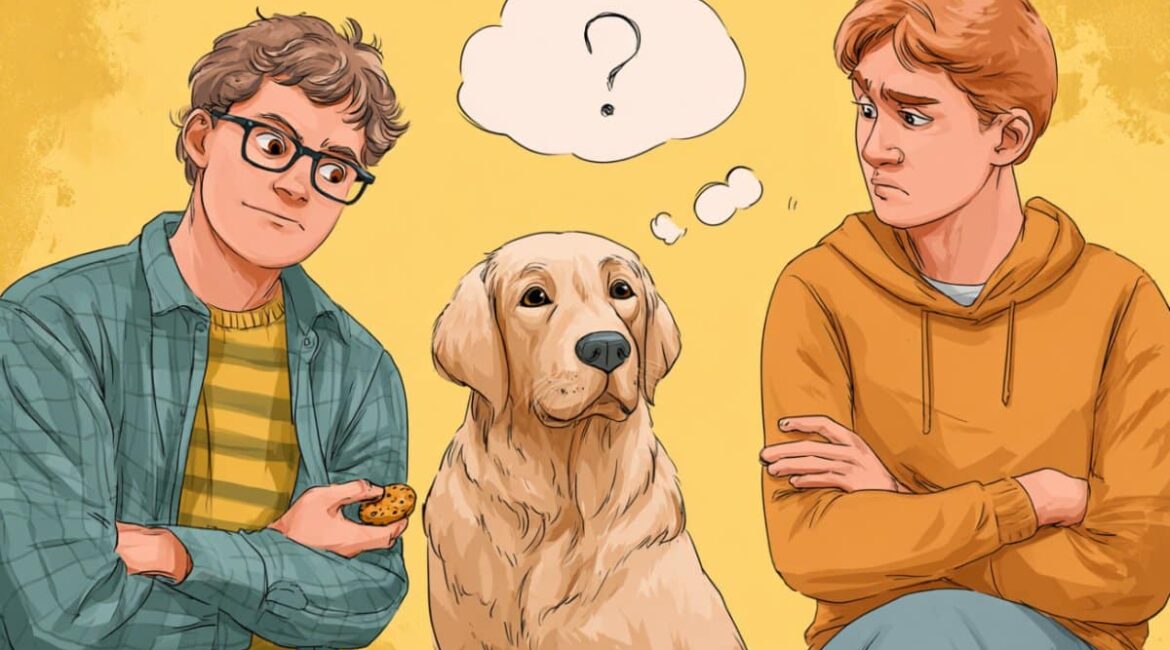Summary: Many dog lovers believe dogs can sense who to trust, but research suggests the reality may be more complex. A study of 40 pet dogs tested whether they form reputations of humans by observing how those humans treated another dog.
Surprisingly, dogs showed no clear preference for a generous person over a selfish one, even after direct interaction. These findings highlight gaps in understanding how dogs perceive and evaluate human behavior, suggesting future research needs broader, more diverse samples.
Key Facts:
- No Clear Preference: Pet dogs did not favor generous humans over selfish ones in tests.
- Direct & Indirect Interactions: Dogs failed to form reputations even after both observation and direct experience.
- Research Implications: Findings suggest methodological and experiential factors need closer examination in future studies.
Source: University of Kyoto
Many people tend to trust dogs’ instincts regarding humans. If dogs gravitate towards you, dog lovers will likely see you as safe and trustworthy, but if dogs are apprehensive around you, some may begin to question your character.
Yet how and even if dogs socially evaluate people remains a mystery.
Studies have demonstrated that cognitively complex and social animal species — such as chimpanzees — can form reputations of humans either through direct interaction or by observing third-party interactions. The historically intimate relationship dogs have with humans has also made them the focus of considerable research, but findings have proven inconsistent.
Previous research conducted at the Wolf Science Center in Austria found that pack-living dogs and wolves did not form reputations of individual humans after both direct and indirect experience with them. This nonjudgmental attitude may be due to the animals’ limited experience interacting with humans, so further study required the participation of more experienced dogs.
In a new study, a research team observed 40 pet dog participants to investigate whether age and development influences how they form reputations of humans. They first arranged for the dogs to eavesdrop on another dog’s interactions with two humans, one of whom was generous and fed the dog demonstrator, while the other did not feed the dog.
After observing another dog’s experience, the dogs interacted with the two humans directly while the researchers analyzed their behavior, taking note of who the dogs approached first, along with behaviors like jumping up and their proximity to each person.
The results revealed that dogs across all age groups did not significantly prefer the generous person who fed the dog compared to the selfish person who refused to feed the dog. Their behavior toward the two humans did not exceed chance levels following indirect eavesdropping or direct experience with them.
“It’s clear that reputation formation may be more complex than previously thought, even for animals like dogs that closely cooperate with humans,” says corresponding researcher Hoi-Lam Jim, who recently joined the faculty at Kyoto University.
This study highlights the methodological challenges in accurately capturing dogs’ understanding and evaluation of humans. Since direct reputation formation is a prerequisite for eavesdropping, the researchers were not surprised to find no evidence of reputation formation, but they did not expect the lack of evidence for it after direct interaction.
“It is possible that methodological challenges in the experimental design, particularly the use of a two-choice test, may explain our negative findings, rather than an absence of capacity,” says Jim.
To better understand what influences dogs’ sociocognitive abilities, the research team says future research should systematically compare dogs of all ages from different populations and life experiences, expanding to include free-ranging dogs, service dogs, and police dogs.
To many of us, it seems reasonable to believe that dogs socially evaluate people, but for now we simply do not know.
About this animal psychology research news
Author: Whitney Hubbell
Source: Kyoto University
Contact: Whitney Hubbell – Kyoto University
Image: The image is credited to Neuroscience News
Original Research: Open access.
“Do dogs form reputations of humans? No effect of age after indirect and direct experience in a food-giving situation” by Hoi-Lam Jim et al. Japan Society for the Promotion of Science
Abstract
Do dogs form reputations of humans? No effect of age after indirect and direct experience in a food-giving situation
Animals can form reputations of individuals through direct interactions or by observing interactions with a third party, known as eavesdropping.
Given their cooperative relationship with humans, considerable interest has focused on whether dogs (Canis lupus familiaris) can socially evaluate humans, though findings remain mixed.
To assess whether this ability develops during ontogeny, we investigated whether dogs of different ages (young, adult, and senior) can form reputations of humans after observing them interact with a conspecific or through direct interactions in a food-giving situation. Forty pet dogs participated in the experiment.
In the eavesdropping condition, dogs observed two humans interact with a dog demonstrator—one was generous and fed the dog, while the other was selfish and withheld food.
In the direct experience condition, dogs interacted with the two partners directly. We analysed dogs’ first choice and time spent exhibiting affiliative behaviours towards each partner.
Results showed that dogs across all age groups did not significantly prefer the generous partner compared to the selfish partner, nor did their behaviour exceed chance levels following indirect or direct experience.
These findings do not provide support for dogs showing reputation formation and highlight the methodological complexities of studying this phenomenon.
